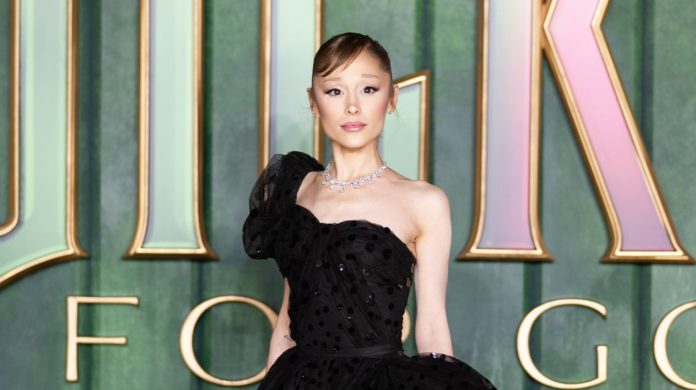One of Ariana Grande’s co-stars is speaking out after an overzealous fan rushed the singer during the “Wicked: For Good” premiere in Singapore on Thursday.
Marissa Bode, who plays Nessarose Thropp in the film adaptation of the popular Broadway play, posted several TikTok videos on Friday addressing the absurd incident, where, during the premiere, a stage-invading social media influencer sped toward the singer and got close enough to wrap an arm around her, hopping up and down in the process. Cynthia Erivo, who also stars in the movie, helped corral the man to security.
Bode began by responding to people who defended the behavior simply because the individual claimed to be a fan of Grande — a justification that didn’t sit well with her.
″‘But they’re a fan!’ OK. Then they’re a fan and a loser,” Bode said.
The actor said the encounter constituted a violation of Grande’s personal boundaries, then shifted to the idea of parasocial relationships — situations in which someone forms a one-way emotional bond with a celebrity or fictional character simply through consuming their media, creating a feeling of closeness or friendship that isn’t actually mutual.
Bode then criticized people who fail to recognize personal boundaries when interacting with public figures.

Samir Hussein via Getty Images
“Did you get your views? Did you get your likes?” she asked. “Guess what you also did? You made somebody feel incredibly unsafe.”
She went on to call the assailant a “bad person” for showing no remorse and emphasized that anyone experiencing an invasion of their space owes no one politeness.
“I don’t think women, or really anybody, should be expected to move with grace or respond with kindness when they’ve been violated in that way, and to expect that makes you a weirdo also,” she said.
“The thing is, most of the time women within the public eye do respond with kindness because they know what the result is going to be if they don’t,” Bode continued.
In a separate video, Bode said the man could not be a “fan” of Grande if he believed it was acceptable to “disregard boundaries, and see somebody as a product and not a person.”







